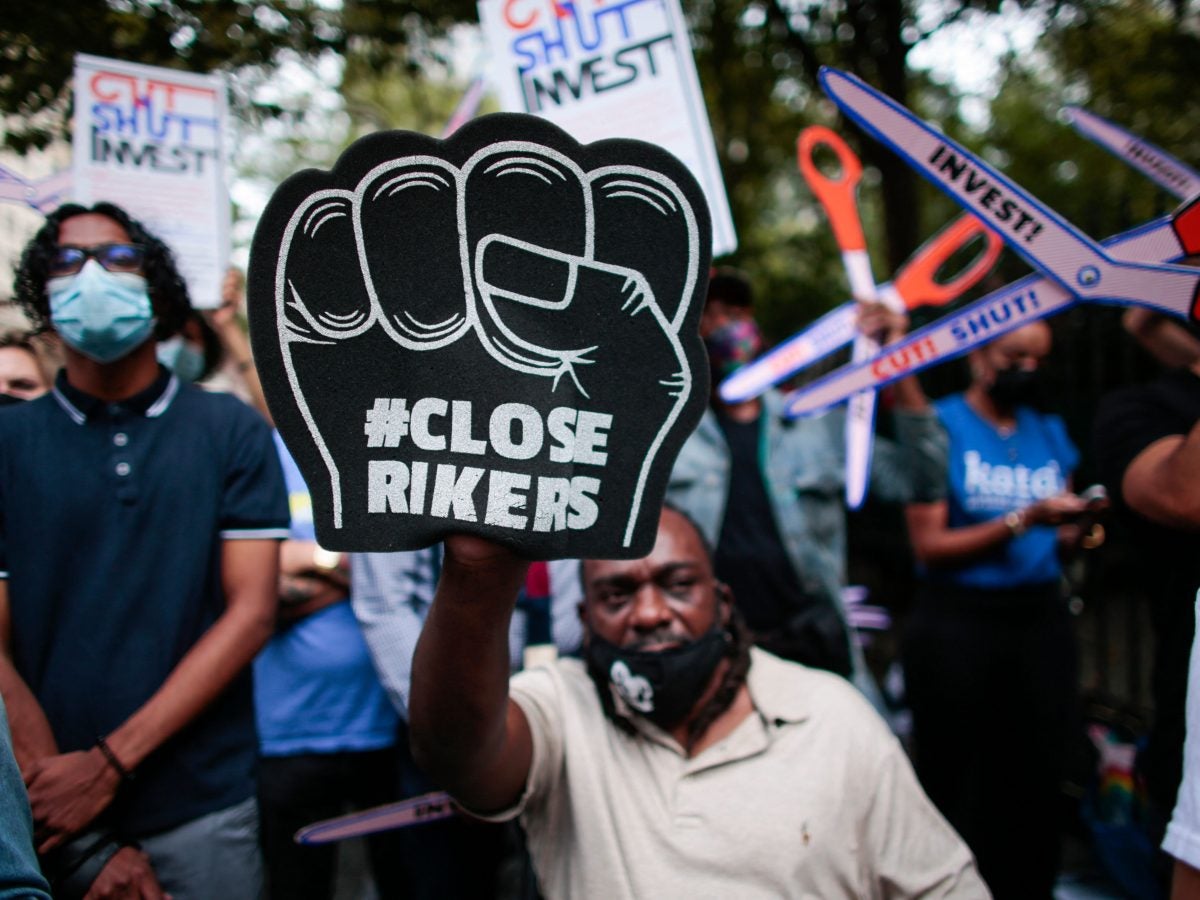
Isa Abdul-Karim, 42, died at about 7:25 p.m. on Sunday in the North Infirmary Command after telling staff he wasn’t feeling well. Wheelchair-bound, the inmate was held in Rikers Island on a parole violation, and was being considered by officials for early release under The Less Is More Act.
While the New York City Department of Correction said it appeared Abdul-Karim died of natural causes, the city’s Medical Examiner will make an official determination. The Less Is More Act, which will be signed this week by Gov. Hochul, seeks to release detainees held on “technical parole violations.”
When Abdul-Karim’s death was announced by DOC Commissioner Vincent Schiraldi, the caveat of “there is nothing natural about what is happening in our jail system right now,” was included. This is because Abdul-Karim is the 11th inmate to die at Rikers since December 2020.
Abdul-Karim had been locked up in the controversial correctional facilities since Aug. 18 for not showing up to meetings with his parole officer and improperly changing his address.
“The list of eligible parole violators and absconders who violated their parole, used for last Friday’s release, in an effort to ease the overcrowding and egregious conditions at Rikers, was effective as of September 16, 2021,” a spokesman for the state prisons system said. “Mr. Abdul-Karim’s record would have been reviewed this week.”
Abdul-Karim, who also suffered from health problems and had a suicide attempt, caught COVID behind bars.
His health issues, which also included a slip in the shower and chest pains, were not immediately addressed by staff, according to the New York Daily News.
Abdul-Karim had been on parole since June 2018 after serving a sentence of two years and six months for selling cocaine to an undercover cop. And with this not being his first time in the jail better known as “Horror Island,” Abdul-Karim’s suicide attempt in 2016 stemmed from him trying to hang himself and swallowing a battery, which caused him “excruciating pain,” the Daily News previously reported via medical records. For that, he was put in an isolation cell, which follows other inmates’ complaints, as detainees say they are being held in intake for a week or more without basic services or medical attention.
That area is dedicated to screening inmates who have just arrived at Rikers Island.
“Providing for the safety of incarcerated people is our core mission, and I am heartbroken that we have seen yet another death of a human being entrusted to our care,” Schiraldi said. “The cause of this death so far appears to be natural, but there is nothing natural about what is happening in our jail system right now.”
Three other detainees have died on Rikers since Aug. 10, including two apparent suicides and one suspected drug overdose.
The mounting death toll and dreadful conditions have ramped up calls for the jail’s swift closure, which elected officials have described as a “humanitarian crisis.”
As of press time, at least 191 people are expected to be released from Rikers as a result of Hochul’s Less Is More Act.
